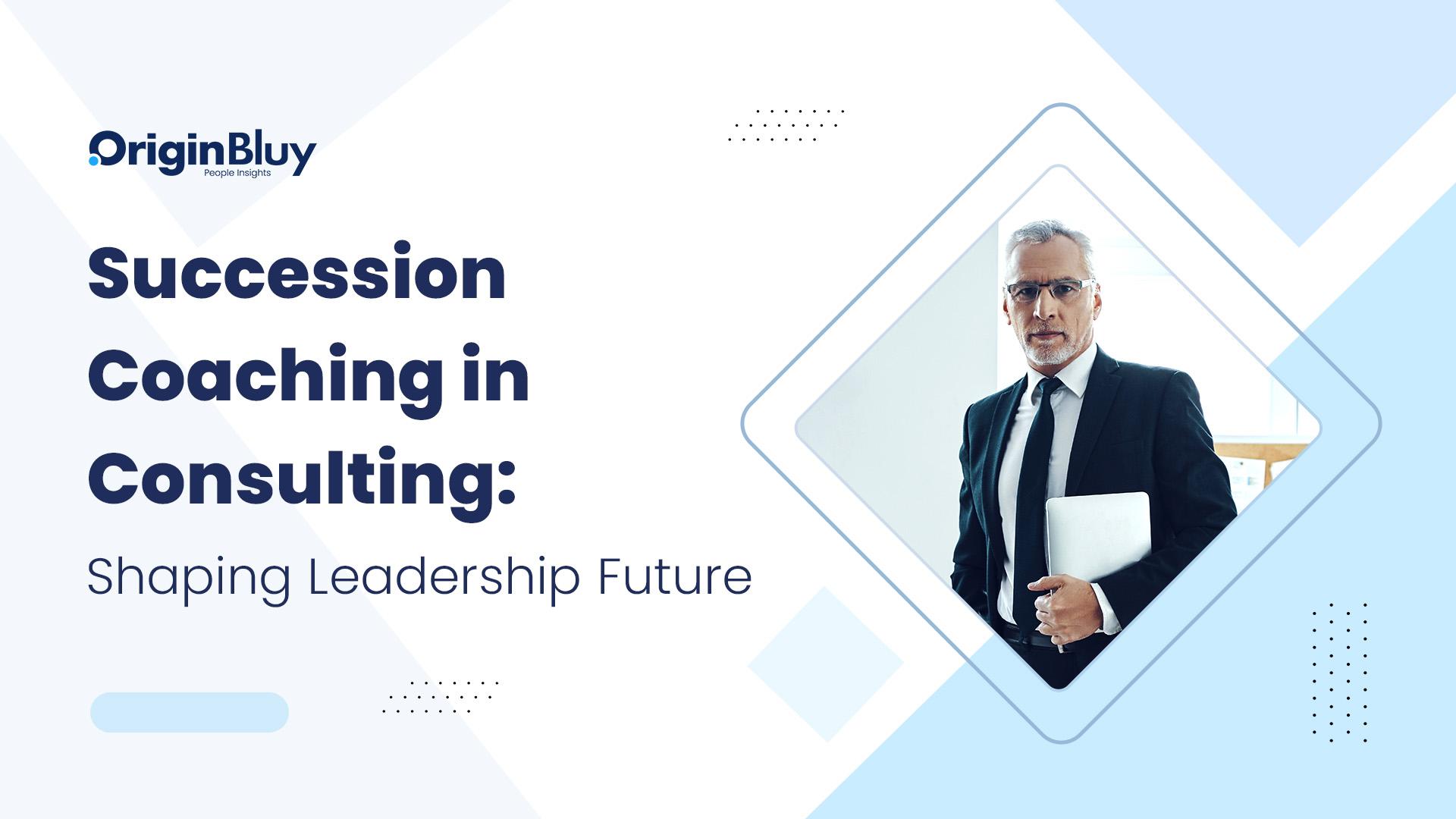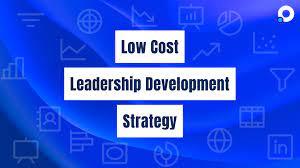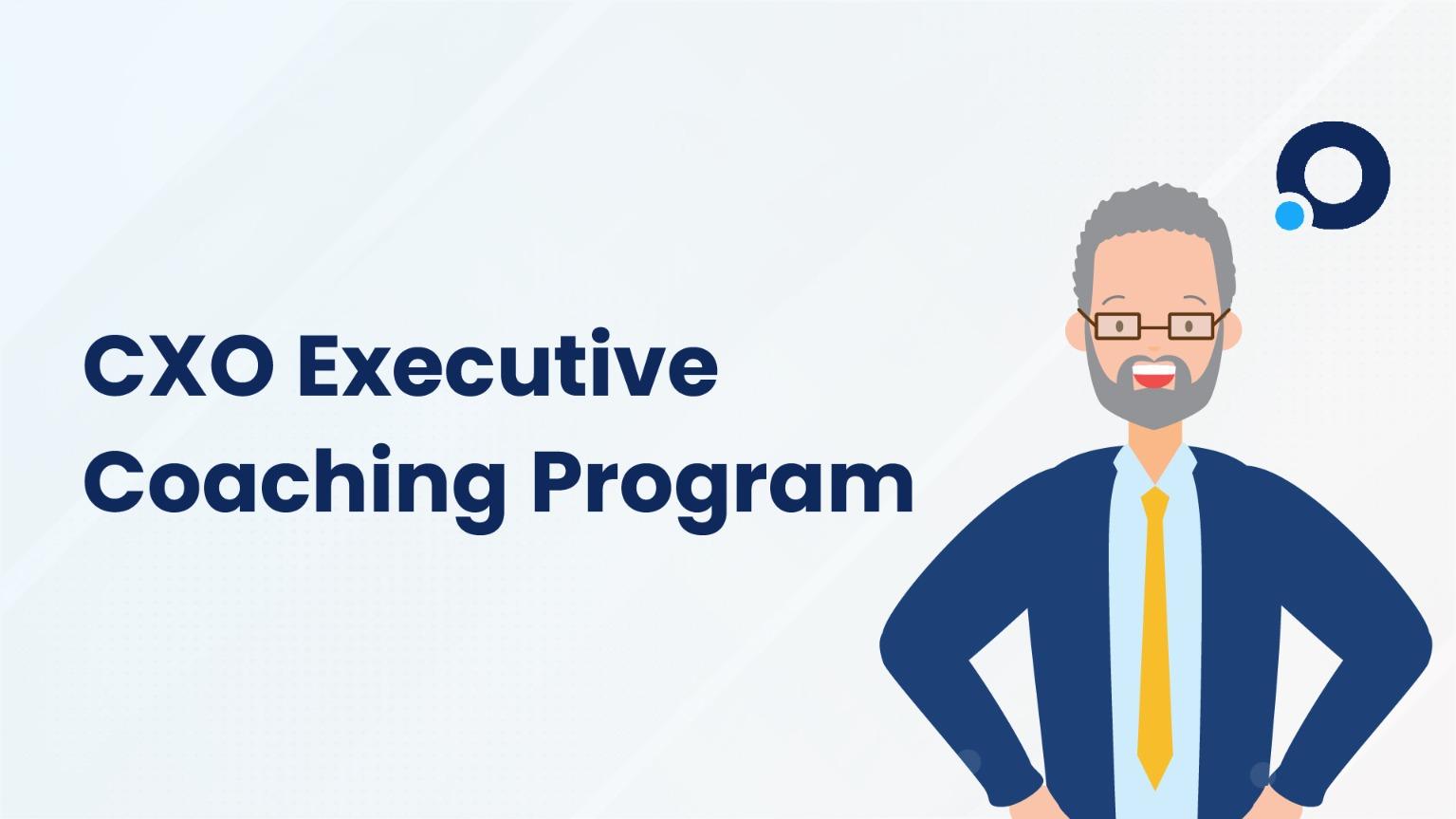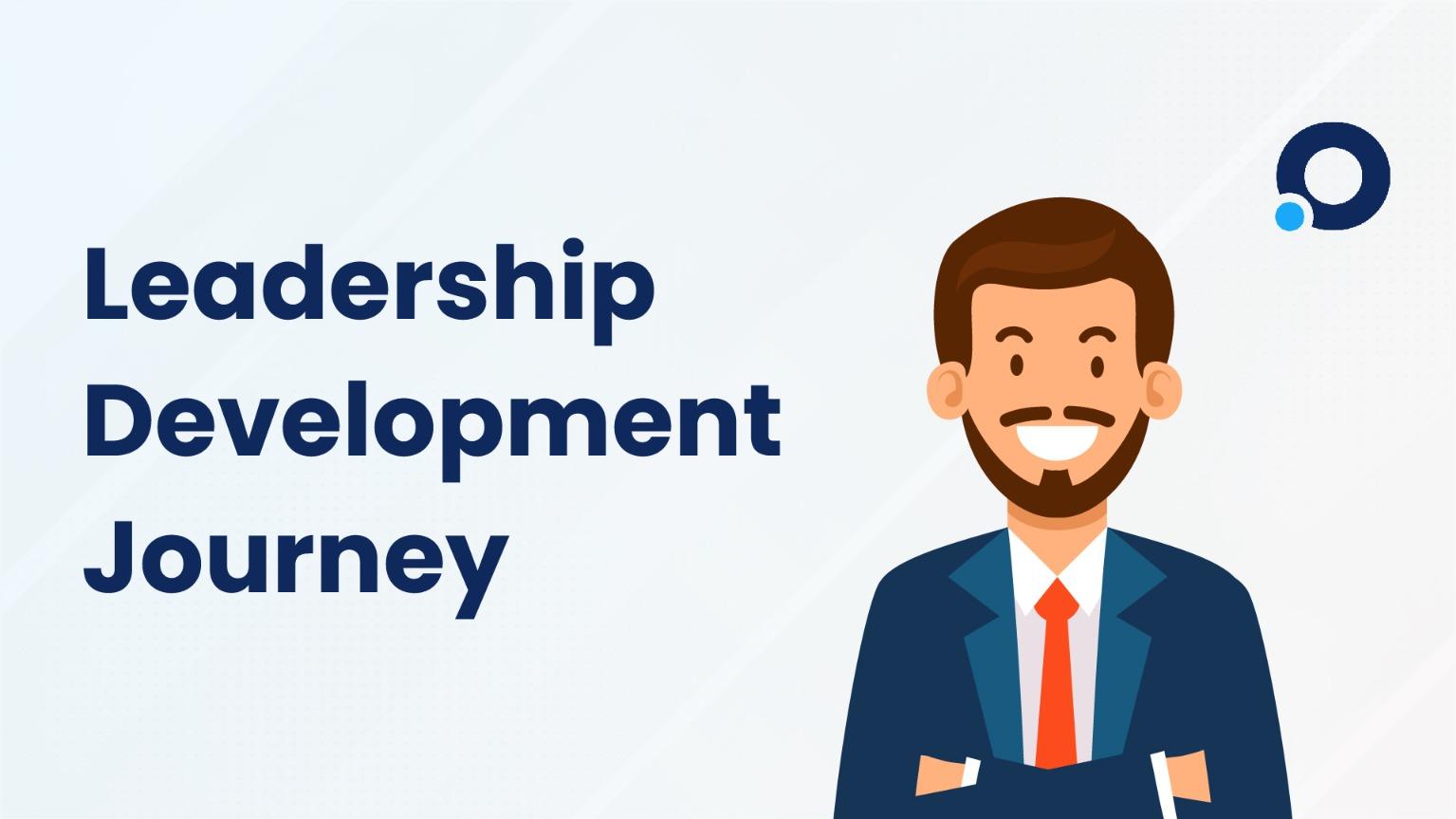Did you know that although 70% of companies realize how crucial succession planning is, only a mere 14% think they do it effectively?
The dynamic consulting sector thrives on knowledge and expertise, foundational elements for success. Yet, this significant contrast between recognizing the importance of succession planning and effectively implementing it presents a considerable challenge.
Succession coaching comes to the rescue, offering a beacon of hope. It ensures that when key leaders pass the baton, the transition is not just seamless but also strategic, safeguarding the firm's legacy and paving the way for future triumphs.
In a realm where leadership continuity is vital, understanding and implementing effective succession coaching could very well be the lifeline your consulting firm needs.
In this blog, we will delve deep into the basics of succession coaching and planning, understand its benefits, and provide tips on how this can be incorporated into an organization.
What is Succession Coaching
Succession coaching is like having a personal trainer, but instead of getting you in shape physically, it's all about preparing you to be a leader in the future.
Imagine a school where the seniors are about to graduate, and they need to pass on their roles in clubs or teams to the juniors. Succession coaching is the process that helps ensure these juniors are ready to take over smoothly and successfully.
In a consulting firm, or any company really, leaders play a huge role. They're like the captains of a ship.
Succession coaching is the plan that makes sure there are always skilled people ready to steer the ship, even if the current captain decides to retire or move on to new adventures. It involves picking out people who have the potential to be great leaders and giving them special training, and advice. Also, it helps them practice so they can develop the skills they'll need to lead in the future.
This way, the company keeps moving forward without any hitches, even when there's a big change in who's in charge.
Benefits of Succession Coaching in Consulting
Succession coaching in the consulting world isn't just a good practice; it's a game-changer. Here's why it's so crucial and the remarkable benefits it brings to the table:
Smooth Leadership Transitions
Imagine passing a baton in a relay race; you want it to be seamless, right? That's what succession coaching does for consulting firms. It prepares future leaders so well that when the time comes for them to step up, it's as smooth as a perfect baton pass.
This ensures that the firm continues to operate efficiently, without missing a beat, even when senior leaders leave or retire.
Retaining Top Talent
Top performers want to know they have a future at the company. Succession coaching shows these high-flyers that the firm is invested in their growth and sees them as essential parts of the company's future.
This makes them more likely to stay, reducing turnover and keeping the firm's best and brightest onboard.
Boosting Employee Morale
When team members see their peers being groomed for leadership, it's a morale booster. It signals that the company values growth and development from within. This positive vibe encourages everyone to aim high.
This helps them know that their efforts and talents are recognized and rewarded.
Enhancing Decision-Making
Succession coaching arms future leaders with the skills and insights needed to make smart decisions. By exposing them to various scenarios and challenges during their coaching, they're better equipped to handle complex situations when they're in charge.
This leads to better decision-making for the firm, safeguarding its future.
Ensuring Continuity in Client Relationships

In consulting, relationships are everything. Succession coaching ensures that when leaders transition, client relationships don't suffer. Future leaders are introduced to key clients early, building rapport and trust.
This continuity is vital for maintaining and growing the firm's business.
Fostering Innovation and Fresh Perspectives
New leaders bring new ideas. By preparing a diverse group of individuals for leadership, succession coaching ensures that the firm benefits from a range of perspectives.
This diversity of thought fosters innovation, helping the firm stay ahead of the curve and tackle challenges creatively.
Building a Resilient Firm Culture
A firm that actively engages in succession coaching demonstrates a commitment to resilience and adaptability. This culture of preparedness and continuous development makes the firm more resilient to changes in the market and internal shifts.
It's about creating an environment where the firm thrives, come what may.
By weaving succession coaching into the fabric of their operations, consulting firms not only secure their future but also enhance their present. It's a strategic investment that pays dividends in leadership quality, employee engagement, and organizational success.
Need of Succession Coaching in Consulting
In consulting, staying ahead isn't just about having the best strategies or the most innovative solutions; it's also about having the right people ready to lead at a moment's notice.
Here's why succession coaching isn't just beneficial but necessary in the consulting industry.
Future-Proofing the Firm
In an industry driven by innovation and adaptability, firms must anticipate and prepare for future challenges. Succession coaching equips potential leaders with not just the skills but also the mindset to foresee industry trends and technological advancements.
This preparation involves scenario planning, strategic thinking exercises, and exposure to cutting-edge technologies, ensuring that the firm's future leaders are ready to navigate and capitalize on the opportunities of tomorrow. By future-proofing leadership, firms ensure their longevity and sustained competitive advantage.
Enhancing Organizational Knowledge Transfer
The depth of knowledge and experience within a consulting firm is a critical asset. Succession coaching facilitates a deliberate process of knowledge transfer where seasoned leaders mentor emerging ones, sharing insights, experiences, and lessons learned.
This structured sharing mechanism ensures that invaluable tacit knowledge—often hard to document or articulate—is passed down effectively. It helps maintain a repository of best practices and wisdom that shapes the firm's approach and solutions, preserving the intellectual legacy and enhancing collective expertise.
Cultivating Leadership Diversity
Diversity in leadership goes beyond demographics; it encompasses a range of experiences, perspectives, and cognitive styles. Succession coaching intentionally develops leaders from various backgrounds, promoting a culture that values different viewpoints.
This diversity fosters innovative problem-solving and creative strategies, as leaders with varied life experiences are more likely to approach challenges uniquely. By embedding diversity in its leadership development strategy, a consulting firm enhances its adaptability and creativity, crucial traits for solving complex client problems.
Aligning Leadership with Evolving Business Models
As consulting firms evolve, their business models often shift to adapt to new market realities. Succession coaching ensures that emerging leaders are not just prepared for the roles as they exist today but are also aligned with the firm's future strategic direction.
This involves training in new business methodologies, digital transformation, and sustainable practices, ensuring that the leadership pipeline is in sync with where the firm is headed, not just where it has been. This alignment is crucial for seamless transitions and the continuous relevance of the firm's offerings.
Boosting Market Position and Brand Reputation
A firm's leadership quality is a significant factor in its market position and brand perception. Coaching contributes to building a strong leadership brand, signaling to clients, competitors, and potential employees that the firm is committed to excellence and forward-thinking.
This reputation for developing high-caliber leaders attracts top talent and clients, reinforcing the firm's position as an industry leader. A robust leadership brand, built through effective succession coaching, becomes a self-reinforcing asset, driving growth and attracting more opportunities.
Encouraging Innovation and Adaptability
The ability to innovate and adapt quickly to changes is a hallmark of leading consulting firms. Succession planning fosters an environment where future leaders are encouraged to think creatively, challenge the status quo, and explore new solutions.
This innovation mindset is cultivated through workshops, hackathons, and exposure to emerging industries and technologies, ensuring that leaders are not just prepared to adapt to changes but are proactive in driving innovation within the firm.
This culture of innovation ensures the firm remains at the cutting edge of consulting services, offering novel solutions to clients and setting industry trends.
The need for succession coaching in consulting transcends traditional leadership preparation. It's about equipping the next generation of leaders with the vision, knowledge, and adaptability to lead the firm into the future.
10 Tips For Succession Coaching in Consulting
Succession coaching is a strategic imperative for consulting firms aiming to navigate the complexities of the modern business environment while preparing for the future.
Here are ten invaluable tips to make the most of succession coaching within your consulting practice:
1. Start with a Clear Succession Strategy
Before diving into coaching, establish a comprehensive succession strategy that aligns with your firm's long-term goals and vision. This strategy should outline the key positions that need succession plans, identify potential leadership gaps, and set clear objectives for the coaching process. A well-defined strategy ensures that succession efforts are focused and aligned with the firm's strategic direction.
2. Identify High-Potential Employees Early
Spotting and nurturing high-potential talent early is crucial. Use performance metrics, leadership assessments, and feedback from team members to identify those with the potential to take on leadership roles. Early identification allows for a more tailored development journey, giving potential leaders ample time to grow and prepare for their future roles.
3. Offer Customized Development Plans
Recognize that each potential leader is unique, with different strengths, weaknesses, and learning styles. Develop customized coaching plans that address these individual needs, focusing on areas that require development and leveraging their strengths. Personalized plans enhance learning outcomes and ensure that future leaders are well-rounded and ready for the challenges ahead.
4. Incorporate Mentorship and Peer Learning

Pair potential leaders with experienced mentors within the firm. Mentorship provides invaluable insights, guidance, and feedback from seasoned professionals. Additionally, encourage peer learning opportunities where potential leaders can share experiences, challenges, and solutions. This collaborative approach enriches the learning experience and fosters a supportive leadership community.
5. Emphasize Practical, Hands-on Experience
Beyond theoretical knowledge, real-world experience is invaluable. Offer potential leaders opportunities to lead projects, participate in strategic decision-making, and take on challenging roles. This hands-on experience builds confidence, hones decision-making skills, and provides a deeper understanding of the firm's operations and client needs.
6. Foster a Culture of Continuous Feedback
Implement a structured feedback mechanism within the coaching process. Regular, constructive feedback helps potential leaders understand their progress, areas for improvement, and successes. This culture of openness and continuous feedback encourages growth and learning, making the coaching process more effective.
7. Integrate Leadership Training and Education
Supplement coaching with formal leadership training and education programs. These programs can offer new perspectives, theories, and leadership models that enrich the potential leader's knowledge base. Consider including courses on strategic management, digital transformation, and other relevant areas that align with the firm's future needs.
8. Leverage Technology for Enhanced Learning
Utilize technology to facilitate and enhance the coaching experience. Online platforms, virtual reality simulations, and AI-driven tools can offer personalized learning experiences, interactive scenarios, and flexibility in learning. Technology can complement traditional coaching methods, making the learning process more engaging and effective.
9. Encourage Reflection and Self-Assessment
Encourage potential leaders to regularly reflect on their learning journey, challenges faced, and lessons learned. Self-assessment helps individuals understand their leadership style, identify areas for improvement, and recognize their growth. This reflective practice deepens the learning experience and fosters personal and professional development.
10. Monitor Progress and Adjust as Necessary
Finally, regularly review the progress of your succession coaching efforts. Use assessments, feedback, and performance data to gauge the effectiveness of the coaching process. Be prepared to adjust coaching plans, strategies, and objectives as needed to ensure that the program remains aligned with the firm's goals and the individual's development needs.
By following these tips, consulting firms can maximize the benefits of succession coaching, ensuring a seamless transition of leadership and the long-term success of the firm. These strategies not only prepare individuals for future leadership roles but also contribute to a culture of continuous learning and development within the firm.
How Succession Coaching Can Help an Organization
Succession coaching plays a pivotal role in ensuring the stability and growth of an organization. By investing in succession coaching, consulting firms can reap numerous benefits that extend beyond the immediate preparation of future leaders.
Here are several key ways in which succession coaching can profoundly impact an organization:
1. Cultivates a Proactive Approach to Organizational Planning
Succession coaching encourages firms to adopt a forward-thinking mindset, focusing on the future rather than just reacting to present needs. This proactive planning helps organizations anticipate leadership vacancies before they occur, ensuring there's always a plan in place for continuity.
It fosters a strategic approach to organizational development, where potential challenges and opportunities are addressed well in advance, minimizing disruptions and maintaining momentum toward achieving long-term goals.
2. Strengthens Organizational Resilience
In today's volatile business environment, resilience is key to survival and success. Succession coaching builds resilience by developing leaders who are capable of navigating uncertainties and leading through change.
This readiness ensures that the organization can withstand market fluctuations, competitive pressures, and internal shifts without losing its strategic focus. A resilient organization is better positioned to capitalize on opportunities and rebound from setbacks.
3. Enhances Organizational Reputation and Employer Brand
Organizations known for their robust leadership development and succession planning are often seen as employers of choice. Succession coaching enhances an organization's reputation by demonstrating a commitment to nurturing talent and ensuring leadership continuity.
This positive perception helps attract and retain top talent, as ambitious professionals are drawn to organizations where they see opportunities for growth and advancement. A strong employer brand is invaluable in the competitive consulting industry, where talent is a critical asset.
4. Facilitates Strategic Knowledge Retention and Transfer
One of the less obvious but equally important benefits of succession coaching is its role in knowledge retention and transfer. By preparing successors through coaching, organizations ensure that valuable institutional knowledge and client insights are preserved and passed down.
This continuity of knowledge is crucial for maintaining the quality of service, understanding client histories, and building on past successes. It ensures that the organization's intellectual capital continues to grow and evolve, rather than being lost through turnover.
5. Promotes a Culture of Leadership and Learning
Succession coaching contributes to a culture where leadership and continuous learning are valued and encouraged. This culture impacts all levels of the organization, not just those in the succession pipeline.
It inspires employees to aspire to leadership roles and engage in their own development journeys. A learning culture fosters innovation, agility, and engagement, which are essential for organizational growth and competitiveness.
6. Ensures Strategic Alignment Across Leadership Transitions
Organizations often face the challenge of maintaining strategic alignment during leadership transitions. Succession coaching addresses this by preparing leaders who are not only skilled managers but also deeply aligned with the organization's vision, values, and strategic goals.
This alignment ensures that leadership changes do not lead to strategic drift or a loss of focus, but rather a seamless continuation of the organization's strategic trajectory.
7. Optimizes Talent Management and Development Investments

Finally, succession coaching allows organizations to make more informed and strategic investments in talent management and development. By identifying and focusing on high-potential individuals, organizations can allocate resources more efficiently, ensuring that development efforts are targeted and effective.
This optimization of talent development investments contributes to better overall performance and a higher return on investment in human capital.
Through these strategic benefits, succession coaching not only prepares individuals for leadership roles but also strengthens the organization as a whole. It ensures that firms are well-equipped to face the future with confidence, backed by a pipeline of capable leaders ready to take on the challenges and opportunities that lie ahead.
Leadership Transformed: Securing Tomorrow with Succession Coaching
Succession coaching stands as a beacon of strategic foresight in the consulting industry, ensuring that the transition of leadership is not just a matter of chance but a well-orchestrated plan for continuous growth and stability.
It transcends traditional leadership development, embedding a culture of proactive planning, resilience, and continuous learning within the organization. By focusing on nurturing a pipeline of future leaders, consulting firms can navigate the uncertainties of the business world with confidence, maintain strategic alignment, and enhance their competitive edge.
This holistic approach to leadership development through succession coaching ensures organizations are not just prepared for the future but are actively shaping it. It's about creating a legacy of strong leadership, strategic continuity, and organizational resilience.
Ready to Shape the Future of Your Leadership?
Embark on a journey of transformation with our succession coaching services. Elevate your organization's leadership development strategy and secure your competitive advantage. Contact us today to learn how we can tailor a succession coaching program that aligns with your strategic goals and prepares your leaders for the challenges and opportunities ahead.
Key Takeaways From the Blog
- The Strategic Imperative of Succession Coaching in Consulting
- Customized Development Plans: Tailoring the Path to Leadership
- Cultivating a Proactive Approach to Organizational Planning
- Enhancing Organizational Resilience Through Leadership Continuity
- Promoting a Culture of Leadership and Continuous Learning



























